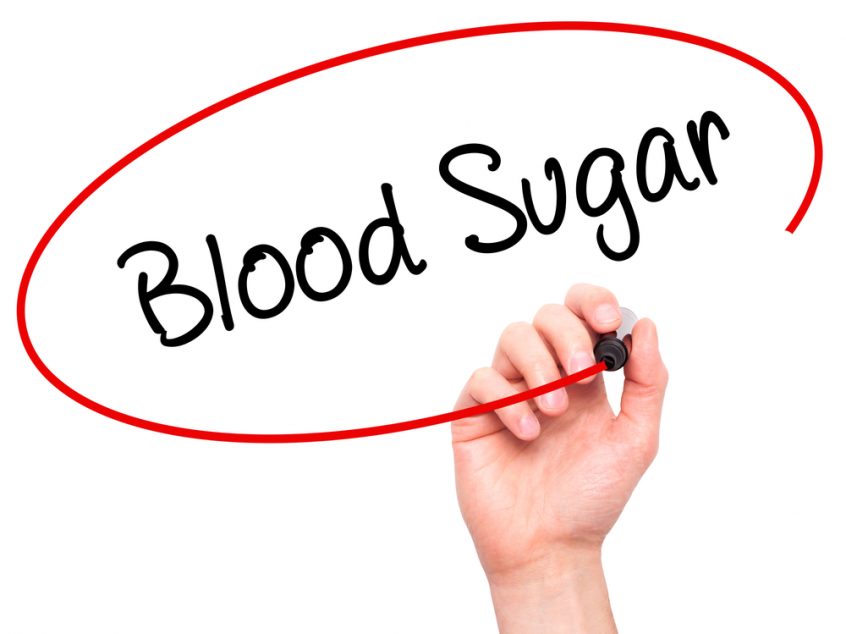Did you know that sugar could be harmful to your mental health? This is the fourth post in a series on some of the physiological (non-psychological) causes of depression and/or anxiety and how naturopathic treatment can help.
Do you often feel tired with foggy thinking and poor concentration, experience sugar or caffeine cravings, suffer from anxiety, depression, mood swings, irritability and interrupted sleep? All these could be signs of poor blood sugar regulation.
Eating high amounts of simple sugars and carbohydrates such as white flour products and refined sugar causes high surges of glucose in our blood. This forces our bodies to produce high amounts of the hormone insulin (this hormone helps remove the glucose from the blood and move it into our cells). High spikes of insulin eventually lead to a dip in blood sugar way below what it normally should be and cause us to feel like we’ve ‘crashed’. At these times we often crave more sugar (bread, pasta, pastries, muffins sweets, etc.) or caffeine (caffeine stimulates the release of sugar into the blood). Additionally, when our blood sugar dips too low, our adrenal glands produce certain stress hormones like cortisol and adrenaline to help bring the blood sugar back up.
The release of adrenaline can bring about symptoms of anxiety, irritability, nervousness, agitation, nausea and unease. At times it can even feel like a panic attack. Cortisol, apart from its effects in releasing blood sugar, also affects certain neurotransmitters, namely serotonin, that affect our mood, Prolonged release of cortisol has been shown to blunt the serotonin receptors and cause symptoms of depression. In addition, blood sugar swings also affect thyroid hormones negatively. Without getting too technical, too much cortisol release, due to blood sugar imbalance, affects the way the thyroid hormone T4, converts to its active form (T3); the hormone that all our cells need (see my previous post in this series on how thyroid affects mood). All in all, not a good thing!
So what can be done to correct and balance blood sugar so that the roller coaster of spikes and dips is avoided and our mood doesn’t suffer?
1) Avoid refined carbohydrates and sugars as well as processed food as much as possible and increase consumption of complex carbohydrates and whole foods. Whole foods have more fibre and this helps stabilise blood sugar.
2) Eat protein with every meal. Eating proteins such as chicken, fish, beef, nuts, seeds, eggs, lentils with every meal ensures a steady and slow release of sugar into the bloodstream.
3) Eat good fats with every meal. Foods with good fats include coconut oil, avocado, olive oil, nuts and seeds and oily fish such as salmon. These good fats, again, help to slow down the absorption of sugar into the blood stream.
4) Avoid stimulants such as caffeine for reasons already mentioned and because caffeine stresses your adrenal glands without providing them any nourishment.
5) Get good sleep. Studies have shown that even one night of poor sleep can increase cravings for sugar and simple carbohydrates.
If you suffer from anxiety and/or depression, experience the roller coaster of blood sugar imbalance and would like an individual naturopathic consultation, please contact Zest Infusion to make your appointment.
Stay tuned for my next post in this series on the link between dietary fat and anxiety & depression
Yours in Health,
Micaela Monteiro-Haig
Naturopath
References
Berk, M., Williams, L.J., Jacka, F.N., O’Neil, A., Pasco, J.A., Moylan, S., Allen, N.B., Stuart, A.L., Hayley, A.C., Byrne, M.L. and Maes, M., 2013. So depression is an inflammatory disease, but where does the inflammation come from?. BMC medicine, 11(1), p.1.
Gardner, D. & Shoback, D. 2011. Greenspan’s Basic and Clinical endocrinology, 9th edn., McGrawHill, International.
Kharrazian Datis 2010, Why Do I Still Have Thyroid Symptoms? When My Lab Tests Are Normal, Morgan-James, NY.
Luppino, F.S., de Wit, L.M., Bouvy, P.F., Stijnen, T., Cuijpers, P., Penninx, B.W. and Zitman, F.G., 2010. Overweight, obesity, and depression: a systematic review and meta-analysis of longitudinal studies. Archives of general psychiatry, 67(3), pp. 220-229.
Nedeltcheva, A.V., Kilkus, J.M., Imperial, J., Kasza, K., Schoeller, D.A. and Penev, P.D., 2009. Sleep curtailment is accompanied by increased intake of calories from snacks. The American Journal of Clinical Nutrition, 89(1), pp. 126-133.
Pan, A., Lucas, M., Sun, Q., van Dam, R.M., Franco, O.H., Manson, J.E., Willett, W.C., Ascherio, A. and Hu, F.B., 2010. Bidirectional association between depression and type 2 diabetes mellitus in women. Archives of Internal Medicine, 170(21), pp. 1884-1891.
Spiegel, K., Knutson, K., Leproult, R., Tasali, E. and Van Cauter, E., 2005. Sleep loss: a novel risk factor for insulin resistance and Type 2 diabetes. Journal of Applied Physiology, 99(5), pp. 2008-2019.
Share this Post

